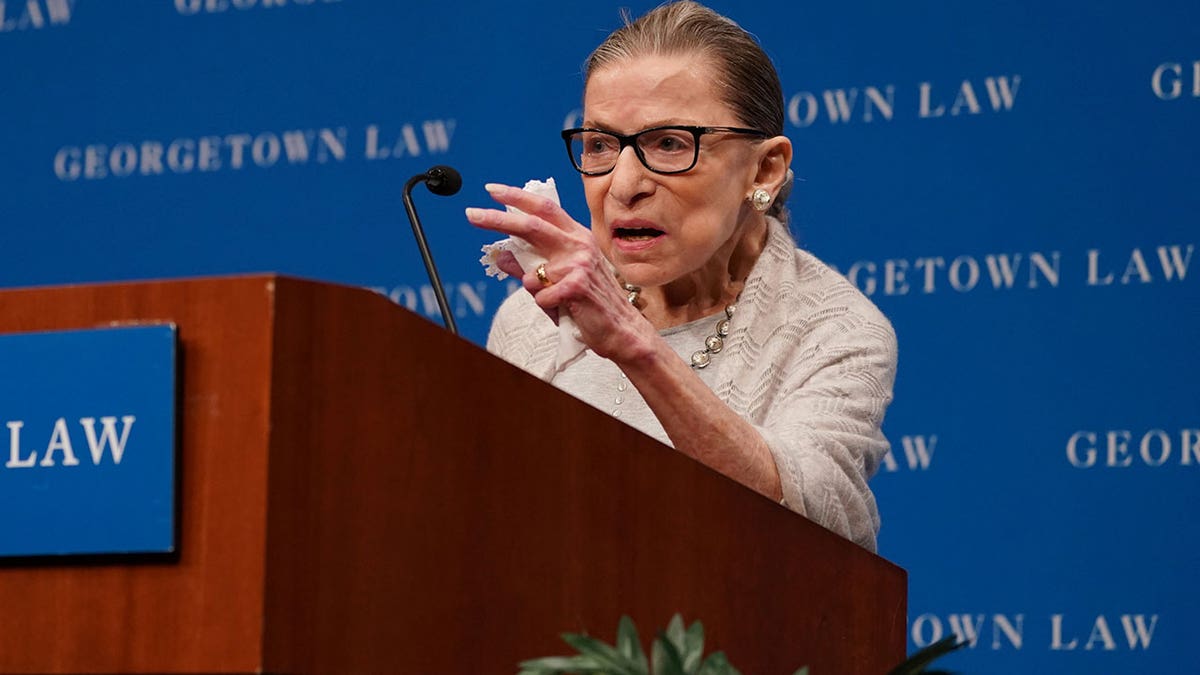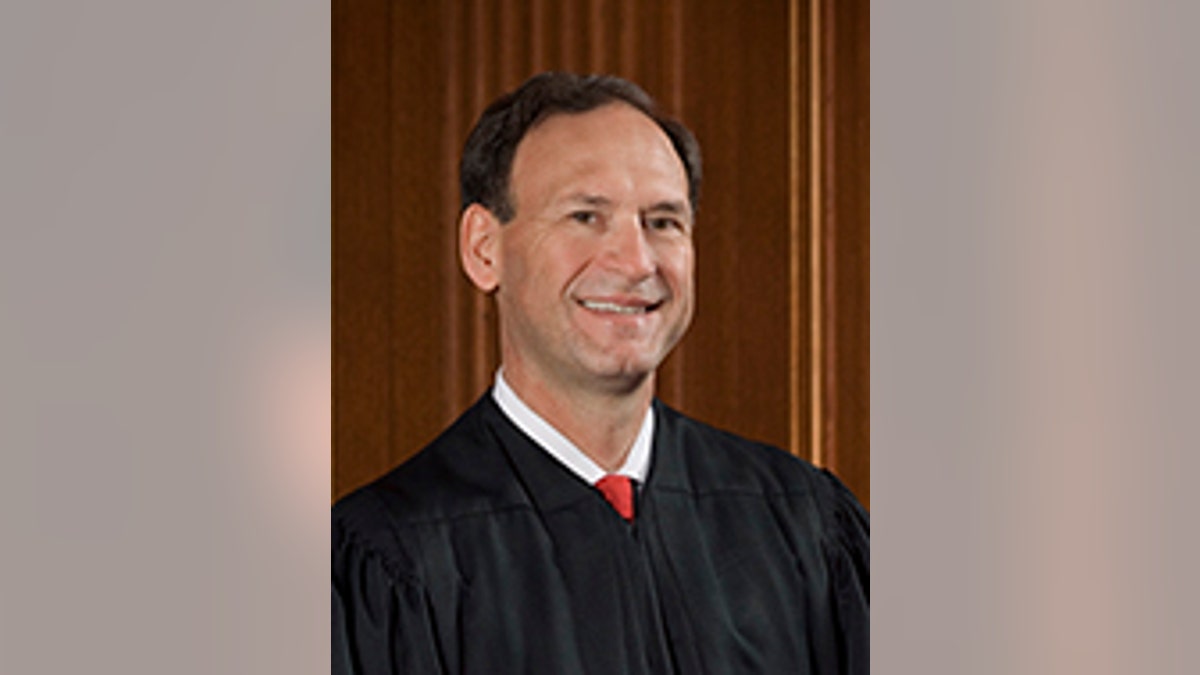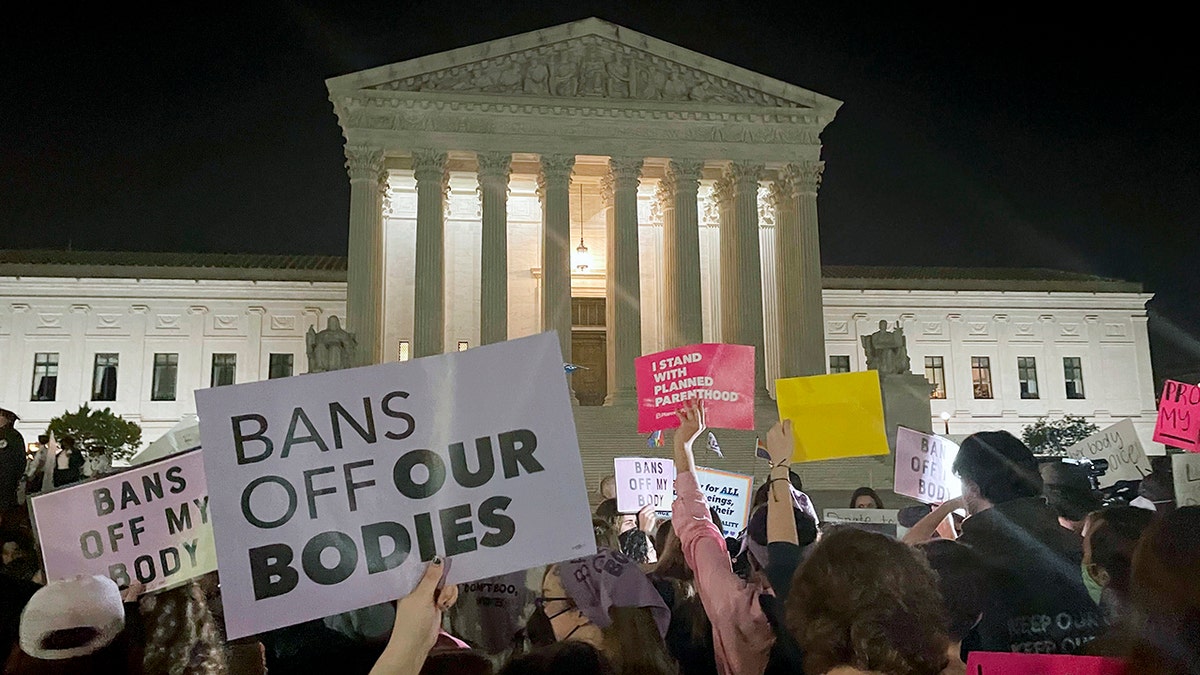SCOTUS abortion case will be decided on principle
Former Deputy Assistant Attorney General Tom Dupree weighs in on if the Supreme Court’s draft opinion on the abortion case will stand on ‘Your World.'
The unprecedented leak of Supreme Court Justice Samuel Alito's draft opinion in a key case striking down Roe v. Wade (1973) has sparked a heated debate, perhaps drawing new attention to the late Justice Ruth Bader Ginsburg's opinion on the key abortion precedent.
Although Ginsburg firmly advocated for women's access to abortion as a constitutional right, she criticized the way in which Roe v. Wade established that right – and her reasoning for this nuanced position may shed light on the current debate.
Chief Justice John Roberts confirmed that Alito's draft opinion in the case Dobbs v. Jackson Women's Health Organization was genuine – although the draft dates back to February, and it does not represent the current or final opinion of the court. In the draft, Alito strikes down Roe v. Wade, which struck down state laws across the country, and allows states to again make their own laws on abortion.

Supreme Court Justice Ruth Bader Ginsburg delivers remarks during a discussion hosted by the Georgetown University Law Center in Washington, Sept. 12, 2019. (Reuters/Sarah Silbiger.)
Should the court indeed strike down Roe in this manner, it might vindicate Ginsburg's concerns about the pivotal decision.
SUPREME COURT SET TO OVERTURN ROE V. WADE, LEAKED DRAFT OPINION SHOWS: REPORT
Ginsburg warned against major judicial shifts in a 1992 lecture at New York University, citing Roe as an example.
"Measured motions seem to me right, in the main, for constitutional as well as common law adjudication," she argued. "Doctrinal limbs too swiftly shaped, experience teaches, may prove unstable. The most prominent example in recent decades is Roe v. Wade."
Ginsburg noted that Roe struck down far more than the specific Texas criminal abortion statute at issue in the case.
"Suppose the court had stopped there, rightly declaring unconstitutional the most extreme brand of law in the nation, and had not gone on, as the court did in Roe, to fashion a regime blanketing the subject, a set of rules that displaced virtually every state law then in force," she said. "A less encompassing Roe, one that merely struck down the extreme Texas law and went no further on that day, I believe and will summarize why, might have served to reduce rather than to fuel controversy."

Supreme Court Justice Samuel Alito (Supreme Court of the United States)
Ginsburg contrasted Roe v. Wade with a case that never received a full hearing at the court, Struck v. Secretary of Defense. In that case, the Air Force tried to discharge a female Air Force captain because she became pregnant. Although the captain's performance as a manager and nurse was exemplary, Air Force regulations required a woman who got pregnant to leave the service or get an abortion.
The captain refused to get an abortion, for religious reasons, instead arranging to have her child get adopted. The Air Force sought to discharge her, and she challenged the move in court. After the Supreme Court agreed to hear the case, the Air Force made an exception and allowed her to remain in the service.
DEMOCRATS CONDEMN SUPREME COURT ABORTION DRAFT AS ‘ABOMINATION,’ URGE CONGRESS TO CODIFY ROE V WADE
The captain argued "that the Air Force regime differentiated invidiously by allowing males who became fathers, but not females who became mothers, to remain in service and by allowing women who had undergone abortions, but not women who delivered infants, to continue their military careers," Ginsburg noted.

People gather outside the Supreme Court, Monday night, May 2, 2022, in Washington following reports of a leaked draft opinion by the court overturning Roe v. Wade. (AP Photo/Anna Johnson)
Ginsburg drew two conclusions from the case: first that "if even the military, an institution not known for avant garde policy, had taken to providing facilities for abortion, then was not a decision of Roe's muscularity unnecessary?" and second that if the court had considered this alternate case, it might have concluded "that disadvantageous treatment of a woman because of her pregnancy and reproductive choice is a paradigm case of discrimination on the basis of sex."
Ginsburg went on to contrast the court's landmark decision in Roe with a slew of decisions from 1971 to 1982 in which the court struck down "a series of state and federal laws that differentiated explicitly on the basis of sex."
Rather than creating a new philosophy of law and imposing it on the nation immediately, "the court, in effect, opened a dialogue with the political branches of government."
"In essence, the court instructed Congress and state legislatures: rethink ancient positions on these questions," Ginsburg noted. "The ball, one might say, was tossed by the justices back into the legislators' court, where the political forces of the day could operate."
CLICK HERE TO GET THE FOX NEWS APP
Alito's opinion effectively reverses what Ginsburg described as fashioning a new "regime" on abortion – a move that would be unnecessary had the court instead proceeded to work with state legislatures and Congress to hammer out compromises on abortion.














































